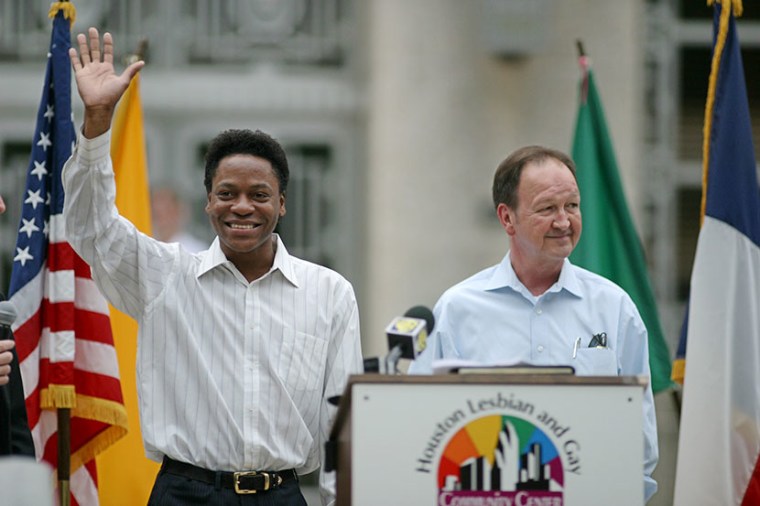History will remember June 26 as a monumental day for the gay rights movement.
Not only will it go down as the day the Supreme Court killed the Defense of Marriage Act and cleared the way for gay couples to marry in California, but it will also be remembered for another landmark decision, ten years older, but just as important: Lawrence v. Texas.
Decided on June 26, 2003, the Lawrence ruling struck down Texas’ infamous sodomy ban, and by extension, anti-sodomy laws in thirteen other states. In one fell swoop, same-sex relationships became legal across the nation.
“This case does involve two adults who, with full and mutual consent from each other, engaged in sexual practices common to homosexual lifestyle,” wrote Justice Kennedy for the majority. “The petitioners are entitled to respect for their private lives. The State cannot demean their existence or control their destiny by making their private sexual conduct a crime.”
By a 6-3 margin, it was decided that Texas’ law violated the due process clauses of the Fifth and Fourteenth Amendments, which safeguard against government infringement on life, liberty, or property. “Had those who drew and ratified” those clauses, wrote Kennedy, “known the components of liberty in its manifold possibilities, they might have been more specific.”
In Wednesday’s ruling striking down the Defense of Marriage Act (DOMA,) a 1996 law that prevented the federal government from recognizing same-sex marriages, it was Kennedy who once again spoke for the Court.
“DOMA instructs all federal officials, and indeed all persons with whom same-sex couples interact, including their own children, that their marriage is less worthy than the marriages of others,” wrote Kennedy. “By seeking to displace this protection and treating those persons as living in marriages less respected than others, the federal statute is in violation of the Fifth Amendment.”
LGBT advocates noted the historical significance of Wednesday’s ruling, made all the more powerful by it’s soon-to-be shared anniversary with Lawrence. Ten years ago, Justice Scalia warned in his dissent that striking down sodomy laws would lead to gay marriage. Today's rulings just proved him right.
Even President Obama remarked on how “fitting” it was that the DOMA ruling should fall exactly ten years after Lawrence while on a congratulatory phone call with plaintiff Edie Windsor, said White House press secretary Jay Carney.
“The Court was clearly moved both by a widow whose wife Thea unfortunately did not live to see this day, and by the children in our families,” said Ruth E. Harlow, lead counsel on Lawrence v. Texas, in a statement. “The decision thrills me most for our six-year-old son, who will live his life with this official federal government discrimination a matter of history only.”
